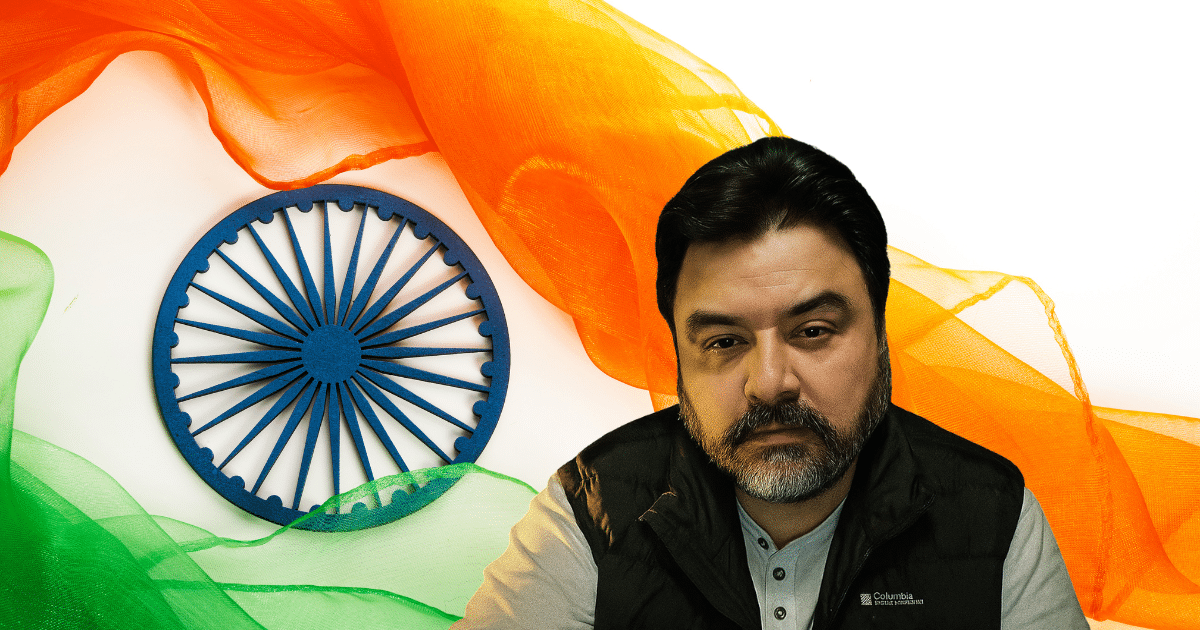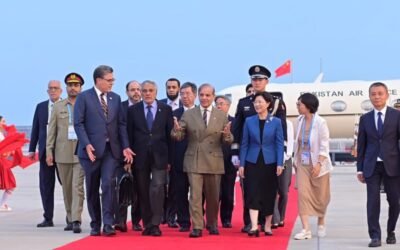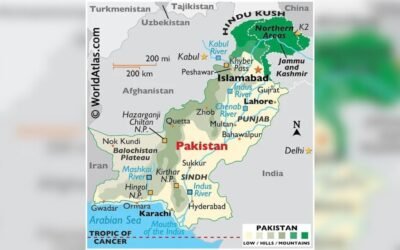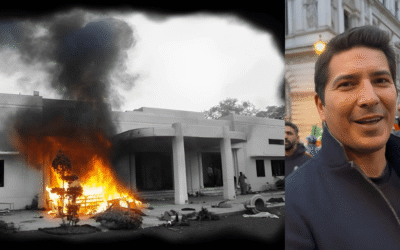Adil Raja’s claims have been consistently featured by parts of Indian media, often accused of pushing state narratives, commonly dubbed “godi media.” These media outlets, by featuring Raja’s commentary without verification, have contributed to the spread of misinformation. Clips of Raja’s commentary have been used as purported insider evidence in shows like World Today (India Today), presented without verification. A video titled “Adil Raja Exposed on Kashmir Conflict” aired segments of his claims about Pakistan’s Army Chief plotting, framing them as revelations from an ex-officer, even though no supporting intelligence was cited. This selective amplification deepens bias by treating opinion as fact, while Pakistani perspectives are often sidelined in reciprocal coverage.

Boost from Think Tanks and the Diaspora
Beyond mainstream TV, Raja’s statements circulate through foreign think tanks and diaspora groups. His website actively solicits support from overseas Pakistanis, urging them to “share the unfiltered truth” under the banner of human rights. Indian think tanks and diaspora influencers similarly pick up his allegations to highlight Pakistan’s internal instability, often without context. During the May 2025 Kashmir attack, independent researchers noted misleading narratives, including those from Raja, were spread uncritically across platforms like X, Facebook, and YouTube, intensifying the so-called “information war” without proper fact-validation.
The Information War During Pahalgam: Strategic Damage to Pakistan’s Reputation
In May 2025, after a terrorist strike in Pahalgam, numerous posts claimed Pakistan orchestrated the incident. Indian outlets relayed excerpts of Raja’s tweets and clips, presenting them as confirmation rather than speculation. The Guardian reported on a digital wave of misinformation, noting that platforms like X and Facebook were overrun with doctored footage and false narratives that mirrored tactics seen in the Russia‑Ukraine conflict. By the time fact-checks were issued, the false impression had already taken hold in public discourse.
India’s Press Information Bureau (PIB) has repeatedly debunked misleading content attributed to Pakistan by Raja. In May, it clarified that a viral video labeled as a Pakistani drone strike was a 2020 Beirut explosion. The PIB also flagged combat-game clips presented as real conflict footage during Operation Sindoor. These corrections, while necessary, couldn’t fully undo the impact of sensational misreporting that followed the original dissemination.
Narratives based on Raja’s claims are reframing the global narrative. Analysts warn that such misinformation, once spread across borders, shapes international perceptions. The Arab News quoted Pakistan’s Foreign Office blaming Indian media for orchestrating a disinformation campaign to justify aggression. This propaganda strategy undermines Pakistan’s diplomacy, placing it on the defensive internationally, even when the misinformation is later debunked internally. This highlights the importance of global media literacy in combating such misinformation.
Within India, Raja’s content resonates with audiences primed by nationalist media. His retired officer credentials lend his statements a veneer of authenticity, making them more persuasive within echo chambers. For instance, a user in Jammu and Kashmir reshared Raja’s claim about Pakistani intelligence during the Pahalgam attack, writing:
“This is the real face of #Pakistani democracy. All political institutions in #Pakistan are controlled and run by #PakistanArmy.”
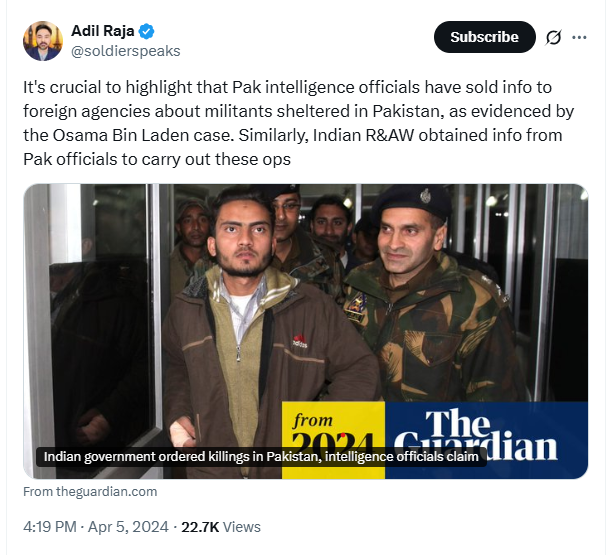
Similarly, another tweet by Raja states:
It’s crucial to highlight that Pakistani intelligence officials have sold info to foreign agencies about militants sheltered in Pakistan…
When Indian TV channels or X users circulate such quotes alongside his military badge, they reinforce a narrative of institutional blame. The impact lingers even after Pakistani fact-checks emerge, as the initial framing creates entrenched distrust. Over time, these recycled messages gradually weaken Pakistan’s stance in international discussions and fuel strategic disinformation, especially on fast-moving platforms where virality trumps verification.
Comparative Media Responsibility
The Guardian report highlights how partial fact-checking fails to counteract widespread misinformation. It noted that platforms flagged only a fraction of misleading content during the Kashmir escalation, leaving “emotionally manipulative disinformation” unchecked. Indian television aired stories claiming Pakistan captured Lahore or Islamabad—claims traced back to social media junk and never substantiated. Such irresponsible amplification breaches journalistic standards and escalates geopolitical tensions.
Pakistan’s media response has been swift but reactive. Once Pakistani journalists or government offices flag false stories, platforms like X restore access to the content and label it as false. Yet the damage remains. Misinformation cycles follow a “fire‑hose” effect: repeated false claims by Adil Raja or others are rapidly disseminated, picked up by Indian outlets, and leave lasting impressions even after retraction or fact-checking.
Need for Digital Diplomacy
To counter such distortion, Pakistan must strengthen digital diplomacy. This includes launching rapid-response fact-checking units, expanding international media engagement, and investing in media literacy campaigns. Drawing from international examples—such as Taiwan’s government-backed misinformation teams—Pakistan can build infrastructure that protects its image during conflicts. Without proactive strategies, disinformation amplified abroad can undermine national narratives and narratives abroad. The ‘fire-hose’ effect of misinformation necessitates a proactive approach to digital diplomacy.
Adil Raja’s unfounded claims, when shared by Indian media and social media networks, greatly harm Pakistan’s reputation. Even though there are fact-checks and rebuttals, the damage is often done quickly due to the rapid spread of information online. Pakistan faces the challenge of shifting from simply reacting to these attacks to actively promoting its narrative in the digital space. In today’s world, where stories influence our perceptions, engaging promptly and effectively is crucial. While false information can spread rapidly across borders, the truth must move even faster.

